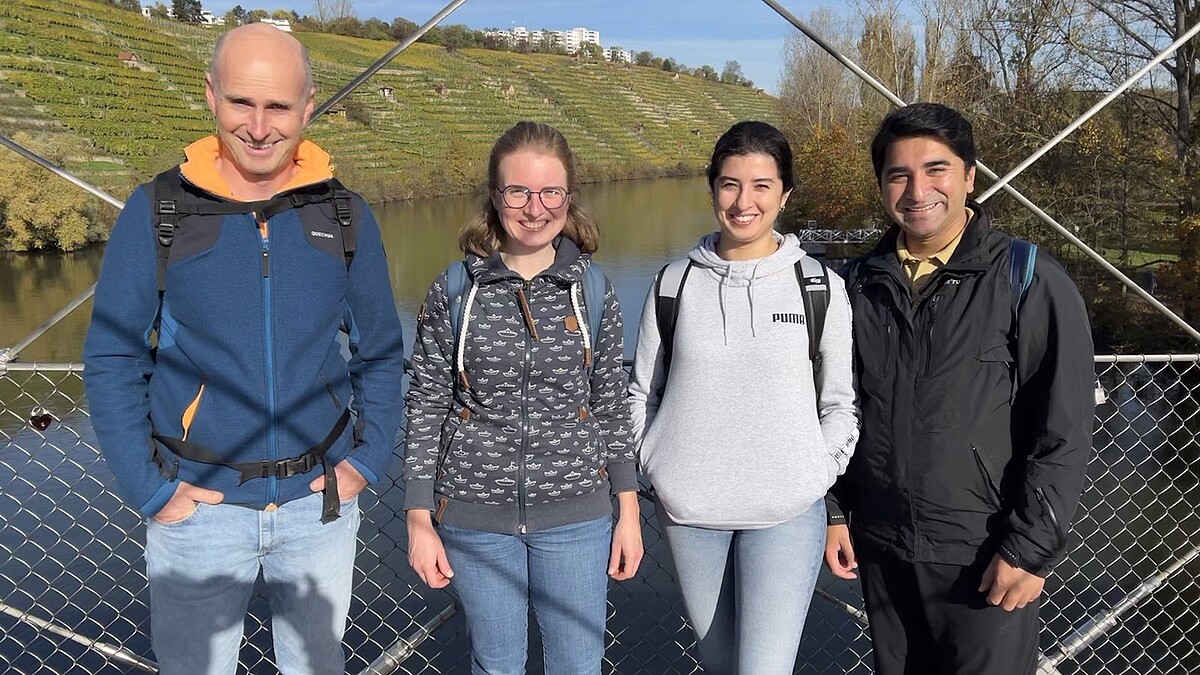
Dr. Khaoula El Hassouni
Khaoula EL Hassouni completed her engineer’s degree in agronomy with specialization in plant pathology at the national school of Agriculture (ENA) in Meknès, Morocco. She did her Ph.D. in plant breeding at the International Center for Agricultural Research in the Dry Areas (ICARDA) and the University of Mohamed V through a project funded by Grains Research and Development Corporation (GRDC). Khaoula’s Ph.D. focused on understanding the plant adaptive mechanisms and molecular basis of tolerance to drought, heat and mineral toxicities in durum wheat. 2019 she joined our group as Postdoc researcher and coordinator of the `Betterwheat´ project at the state plant breeding institute in the Univerrsity of Hohenheim. Her current work revolves around exploring the genomic and proteomic architecture and environmental variability of quality and health
related traits in wheat. Khaoula has dedicated to shape her career in agricultural research for improving the livelihoods for people. Her publications can be found here.
Dr. Muhammad Afzal
is currently working as a Postdoctoral Researcher at our group. He aims to find a novel method for predicting the end-use quality in wheat crop by using various machine learning techniques and data generated in different kinds of tests to determine quality. His additional objective is to explore the potential of integrating proteomics and genomics data for enhanced prediction of important traits. Moreover, his research delves into studying the genetic architecture of key traits crucial for human health and end-use quality.
Dr. Afzal received the Bernhard van Lengerich Research Award for his PhD thesis in the field of food science. In this thesis, performed in our group, Dr. Afzal delved into the potential of large-scale proteomics to enhance wheat grain quality. Employing high-throughput proteomics, thousands of proteins across hundreds of samples coming from diverse genotypes cultivated under different environmental conditions were quantified. The resulting data underwent extensive statistical analyses, including heritability estimations, variance component assessments, and correlation analyses. These analyses were carried out to understand what kind of proteins can be / should be subjected to selection in breeding programs. The extended lists of interesting proteins were presented that can be subjected to selection during breeding programs given that consumers’ interest is available and quantification of proteins further gets optimized. Moreover, different wheat species (diploid, tetraploid, and hexaploid) and bread-making processes were compared to study their allergenic content measured in terms of the total abundance of allergenic proteins, and hence screened for a favorable wheat species and bread-making process in terms of suitability for humans sensitive to certain wheat proteins.His scientific publications can be found here.
M.Sc. Carina Meyenberg
started her career in plant breeding by training as an agricultural technician at a private plant breeding company. Fascinated by plants and convinced of the potential of plant breeding, she completed her bachelor’s degree in agricultural sciences at the University of Hohenheim, followed by a master’s degree in “Integrated Plant and Animal Breeding” at the University of Göttingen, Germany.
October 2022 Carina joined our group as a PhD student. Her current work is focussing on phenomic prediction in durum wheat, which aims to predict the performance of relevant traits based on near-infrared spectra (NIRS), similar to genomic prediction using genomic data. Moreover, Carina is investigating the efficient implementation of genomic selection in a wheat breeding program and analysing the genetic contribution of genetic resources in new wheat breeding lines. Therefore, she is comparing different methods.
